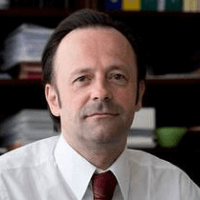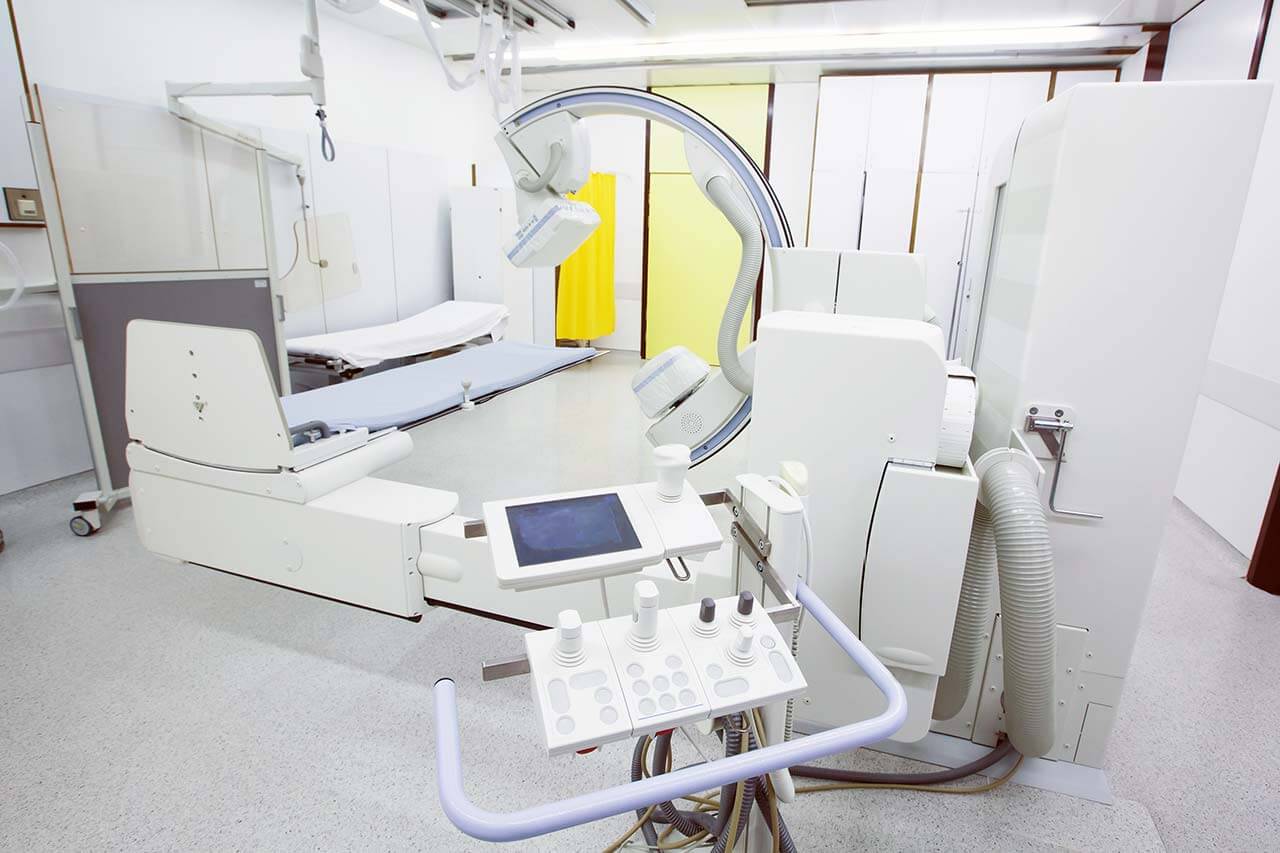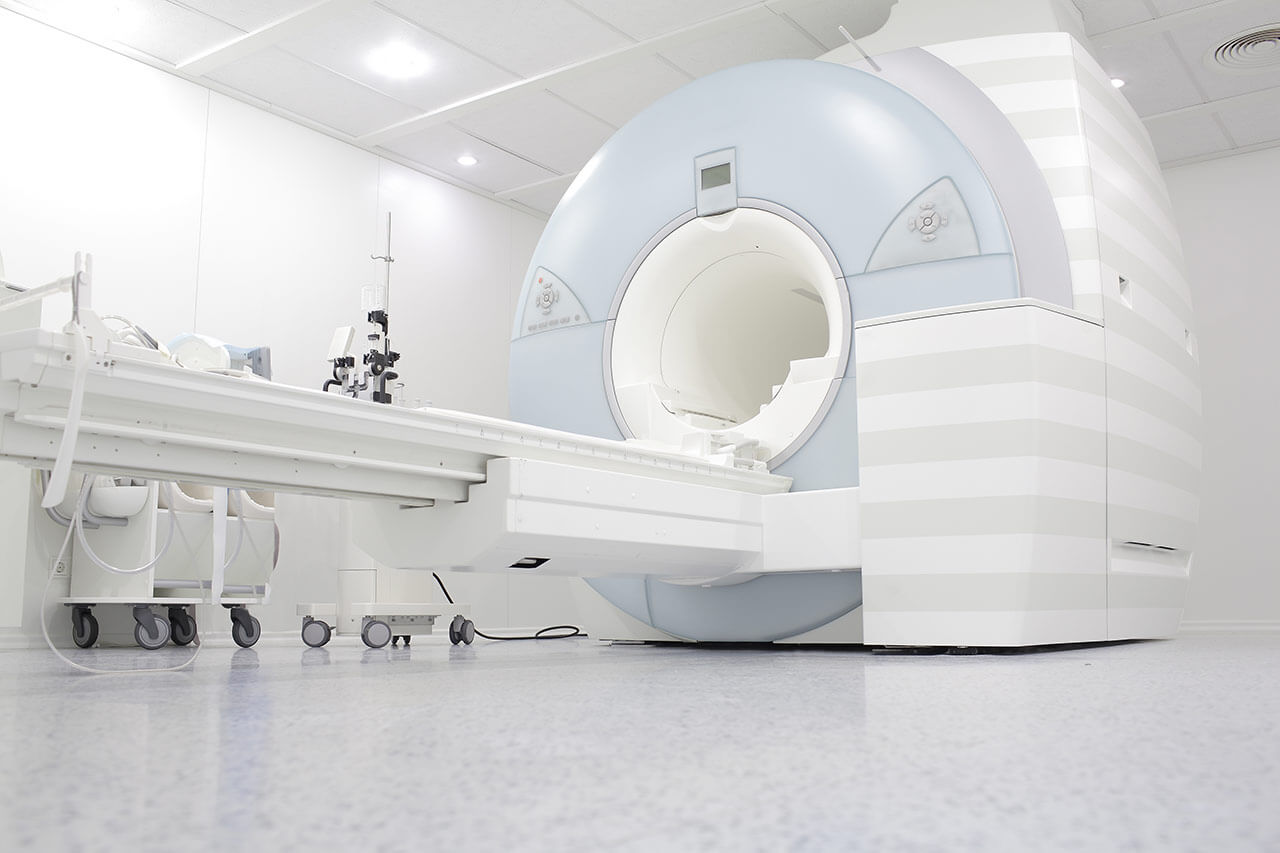
The program includes:
- Initial presentation in the clinic
- clinical history taking
- physical examination
- review of medical records
- laboratory tests:
- complete blood count
- general urine analysis
- biochemical analysis of blood
- TSH-basal, fT3, fT4
- indicators of inflammation
- indicators blood coagulation
- CT/MRI of head
- preoperative care
- partial resection and coil embolization
- postoperative CT control
- control MRI angiography
- stay in intensive care unit for 1 day
- symptomatic treatment
- control examinations
- the cost of essential medicines and materials
- nursing services
- full hospital accommodation
- explanation of future recommendations
Required documents
- Medical records
- MRI/CT scan (if available)
- MR/CT-angiography (if available)
Service
You may also book:
 Price:
Price:
About the department
The Department of Adult and Pediatric Neurosurgery at the Hannover Medical School offers the full range of services in this medical field. It performs surgical treatment of the nervous system diseases using the most advanced microsurgical, endoscopic, stereotactic and interventional techniques. The department's doctors specialize in the correction of functional nervous system disorders, surgery for brain and spinal cord tumors, including pituitary gland, skull base surgery, neurovascular interventions, spinal surgery, surgical treatment of traumatic brain injuries and nervous system diseases in children. The department is headed by Prof. Dr. med. Joachim Krauss.
The department is equipped with four high-tech operating rooms to perform interventions of any degree of complexity. The medical equipment meets current European requirements, while advanced neuromonitoring systems ensure a high safety of surgical interventions. About 2,200 inpatients and more than 4,600 outpatients receive medical care in the department annually. The department also performs more than 2,000 surgical interventions every year. The department's doctors admit patients of all age categories – young children, middle-aged and elderly patients.
Special attention should be given to the exceptional professionalism of the department's team of neurosurgeons. The medical team consists of four senior physicians, two highly specialized physicians, 18 assistant physicians and a large number of nursing staff. The specialists take on the most complex clinical cases, and at the same time achieve excellent results, providing their patients with a decent quality of life. Whenever possible, doctors use sparing microsurgical, endovascular and minimally invasive surgical techniques that allow the patient to avoid prolonged postoperative recovery. The neurosurgeons of the medical facility cooperate closely with neurologists, neuroradiologists and other specialists from related fields.
One of the priority focuses of clinical practice is the treatment of benign and malignant brain and spinal cord tumors. The goal of surgical treatment is the most complete and sparing removal of tumors. Modern surgeries with intraoperative monitoring allow the department's specialists to perform tumor resection while preserving vital functions, also in eloquent brain regions. In addition to microsurgical techniques for the removal of brain tumors, the department offers many other minimally invasive techniques – neuroendoscopy, stereotaxy, fluorescence-guided tumor resection and biopsy with neuronavigation systems. To achieve the best treatment results, there is maintained close cooperation with other departments and centers of the hospital.
The specialists have particular competence in spinal surgery. The department's neurosurgeons successfully perform surgical procedures to replace intervertebral discs, stabilize the spine, surgeries for spinal stenosis, scoliosis, as well as removal of benign and malignant spinal tumors. Most of the operations are performed using minimally invasive techniques, while the application of computer navigation and neuromonitoring practically eliminates the risks of postoperative complications.
The department's range of medical services includes:
- Brain and spinal cord surgery (treatment of benign and malignant tumors of the central nervous system)
- Microsurgical techniques
- Minimally invasive interventions
- Neuroendoscopy
- Stereotaxy
- Fluorescence-guided tumor resection
- Biopsy under the control of neuronavigation systems
- Spinal surgery
- Treatment of herniated discs (lumbar spine, cervical spine)
- Treatment of degenerative changes in bone tissue
- Treatment of spinal cord tumors
- Treatment of spinal stenosis
- Scoliosis correction
- Correction of congenital spinal defects in adults and children
- Functional neurosurgery
- Deep brain stimulation (for example, to treat motor disorders, Parkinson's disease, dystonia, tremors)
- Treatment of chronic neuralgia (ablative and stimulating methods, such as stimulation of the spinal cord, ganglia, peripheral nerves)
- Stereotactic surgery
- Neurotraumatology
- Treatment of traumatic brain injuries
- Treatment of spinal injuries
- Vascular surgery (vascular diseases of the brain and spinal cord)
- Treatment of cerebral aneurysms
- Treatment of arteriovenous malformations
- Treatment of arteriovenous fistulas
- Treatment of cavernomas
- Treatment of cerebral haemorrhages
- Neurosurgical reconstructive surgery (correction of congenital or acquired skull bone defects)
- Treatment of hydrocephalus
- Bypass surgery
- Endoscopic interventions
- Pediatric neurosurgery
- Treatment of benign and malignant tumors of the brain and spinal cord
- Treatment of cerebral hemorrhage
- Treatment of hydrocephalus
- Treatment of vascular malformations
- Treatment of congenital malformations and developmental disorders of the central and peripheral nervous system
- Neurosurgical treatment of pain syndrome
- Drug injections and infiltrations
- Nerve root block
- Facet joint block and denervation
- Thermocoagulation
- Stimulation techniques (for example, nerve stimulation, spinal cord stimulation)
- Deep brain stimulation
- Cerebral cortex stimulation
- Treatment of trigeminal neuralgia
- Decompression interventions
- Skull base surgery
- Treatment of tumors
- Treatment of skull base fractures
- Treatment of vascular diseases
- Other surgical options
Curriculum vitae
Higher Education
- 1977 - 1985 Study of Medicine, Albert Ludwig University of Freiburg, Germany.
- 1985 Admission to medical practice.
- 1985 Doctoral thesis defense (with honors).
Internship
- 1985 - 1987 Neurology Clinic Elzach.
- 1988 - 1989 Department of Stereotactic and Neuro-Nuclear Medicine, University Hospital Freiburg.
- 1989 - 1993 Department of General Neurosurgery, University Hospital Freiburg.
Board Certification and Additional Qualifications
- 1993 Board certification in Neurosurgery.
- 1995 Additional qualification in Sports Medicine.
- 1995 Additional qualification in Rehabilitation Medicine.
- 1995 Additional qualification in Special Neurosurgical Intensive Medicine.
- 1999 Additional qualification in Special Pain Therapy.
Professorship (Habilitation)
- 1994 Doctoral thesis "On the issue of pathological physiology and diagnostics of normotensive hydrocephalus".
- 2000 Professorship at the Ruprecht Karl University of Heidelberg.
- 2001 Extraordinary Professorship, Ruprecht Karl University of Heidelberg.
Practical Сareer as Neurosurgeon
- 1993 - 1995 Senior Physician in the Department of General Neurosurgery, University Hospital Freiburg.
- 1995 - 1997 Clinical Assistant Professor, Department of Neurosurgery, Baylor College of Medicine, Houston, USA.
- 1997 - 1998 Managing Senior Physician and Head of the Section for Functional Neurosurgery, Department of Neurosurgery, University Hospital Bern, Switzerland.
- 1998 - 1999 Deputy Senior Physician, Department of Neurosurgery, University Hospital Bern, Switzerland.
- 1999 - 2005 Deputy Chief Physician, Department of Neurosurgery, University Hospital Mannheim.
- Since 2005 Chief Physician of the Department of Adult and Pediatric Neurosurgery at the Medical School Hannover.
Academic Appointments
- 1995 - 2000 PD of Neurosurgery, Albert Ludwig University of Freiburg.
- 1997 - 1998 Clinical Assistant Professor, Department of Neurosurgery, Baylor College of Medicine, Houston, USA.
- 1998 - 2004 Adjunct Professor, Department of Neurosurgery, Baylor College of Medicine, Houston, USA.
- 2000 - 2001 PD of Neurosurgery, Ruprecht Karl University of Heidelberg, Germany.
- 2001 - 2005 Extraordinary Professor, Ruprecht Karl University of Heidelberg, Germany.
- Since 2005 (W3) University Professor, Department of Adult and Pediatric Neurosurgery at the Medical School Hannover, Germany.
Clinical Interests
- Surgical treatment of tumors of the nervous system.
- Surgical treatment of functional neurological disorders.
- Spinal surgery.
- Skull base surgery.
Research Interests
- Research on the development of new implants for spinal surgery.
- Research on the causes of hydrocephalus in adults.
- Research on movement disorders.
Awards, Prizes and Honors
- 1997 Honorable Award of the German Society for Neurotraumatology and Clinical Neuropsychology.
- 2002 Oppenheim Award of the German Dystonia Association.
Memberships in Professional Societies
- Vice President of the World Society for Stereotactic and Functional Neurosurgery.
- Member of the Executive Committee of the Epidemiologic Study of Dystonia in Europe.
Photo of the doctor: (c) Medizinische Hochschule Hannover (MHH)
About hospital
The Hannover Medical School has the status of a leading German medical facility. The advanced medical technologies, highly qualified specialists, as well as productive research activities form a solid basis for top-class medical service of the world standard. The hospital is proud of its outstanding achievements in the treatment of cancer, diseases of the lung, heart, kidney, liver and metabolic disorders, as well as surgical diseases.
The medical facility diagnoses and treats more than 63,000 inpatients and about 470,000 outpatients annally. These indicators are growing steadily, which indicates the reputability and prestige of the hospital in the European medical arena.
For decades, the hospital has been a pioneer in transplantation medicine and is one of the leading centers of this specialization in the world. It performs about 400 transplantations of solid organs annually. Also, the hospital has performed over 130 bone marrow transplantations. In addition, the hospital ranks among the world leaders in cochlear implantation for the treatment of hearing loss.
Much attention is paid to interdisciplinary cooperation. Since 2016, the hospital has the largest certified Cancer Center in the Federal State of Lower Saxony, which provides comprehensive, multidisciplinary medical care in accordance with the standardized protocols of cancer societies.
The specialists of the hospital offer patients not only modern treatment of the highest quality, but also attentive care, sympathetic attitude to the patient's problems and understanding of his individual needs. Thus, the patient can be sure that his health is in the safe hands of highly qualified doctors.
Photo: (c) depositphotos
Accommodation in hospital
Patients rooms
The patients of the Hannover Medical School live in comfortable and cozy rooms. Each patent room has an ensuite bathroom with shower and toilet. A standard patient room includes an automatically adjustable bed with an orthopedic mattress, a bedside table, a wardrobe, a TV and a telephone. You can use TV, telephone and Internet using a special chip card, which can be purchased at self-service terminals or ordered at the service counter. The hospital allows the patients to use mobile phones, with the exception of intensive care units, some departments and diagnostic rooms.
If desired, the patient can stay in an enhanced-comfort room. Such rooms are distinguished by a more sophisticated design, and are additionally equipped with upholstered furniture, a safe for storing valuables and a mini fridge.
Meals and Menus
The patient and the accompanying person are offered delicious and balanced three meals a day. Breakfast and dinner are served buffet style and lunch can be chosen from three set menus. All dishes are prepared by professional chefs using the freshest ingredients available in the region.
If you are on a specific diet for some reason, you will be offered an individual menu. Please inform the medical staff about your dietary preferences prior to the treatment.
Further details
Standard rooms include:
Religion
There is a chapel on the territory of the hospital, where Christian and Catholic services are regularly held. The hospital provides a prayer room for followers of Islam, which is open for visits 24 hours a day.
Religious services can also be provided upon request.
Accompanying person
During an inpatient program, an accompanying person can stay with you in the patient room or in a hotel of your choice.
Hotel
During an outpatient program, you can stay in a hotel of your choice. The managers will help you choose the most suitable options.


